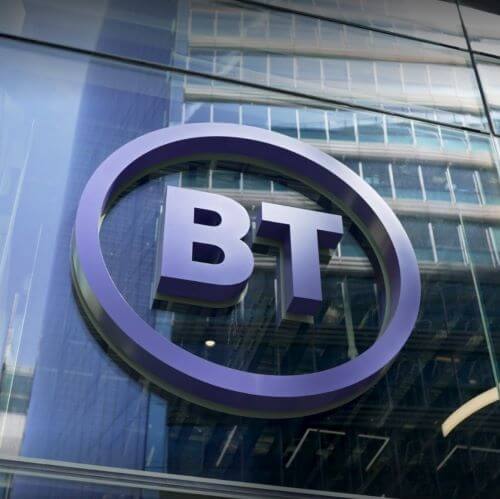BT plays it safe with naming of Allison Kirkby as next CEO
The chromosomes have changed at the top of BT, but the company plan of fiber rollout and automation is likely to remain the same.

Top-flight soccer is famous for recirculating its bosses. A manager will quit a club, typically after a string of bad results, only to pop up at another big team weeks or months later. The telecom sector can often look the same. The best recent example of immediate career resurrection came in 2016 when Hans Vestberg was forced to step down from the CEO post at Ericsson following a disastrous tenure. Months later he was in a senior role at Verizon, the giant US operator he now runs.
Allison Kirkby had been one of the sector-circulating names linked with the top job at BT when the UK telco incumbent last did a switch in February 2019. Back then, when she led Danish counterpart TDC, BT ultimately settled on Philip Jansen as the replacement for the soccer-mad, out-of-favor Gavin Patterson. But Kirkby has scored this time round. When Jansen leaves – no later than January next year – she will be his successor.

Allison Kirkby will replace Philip Jansen as BT CEO in the next seven months.
(Source: BT)
News of her appointment this morning, and the few comments she supplied for BT's statement, signal not much is likely to change at the operator, even if it will be led for the first time ever by someone who lacks a Y chromosome. Jansen's mission has been to prioritize the rollout of fiber-optic networks, drag BT away from its costly gamble on TV and automate to the max. Kirkby looks set to continue the job.
Her hands are effectively tied. BT was under regulatory pressure to build out fiber more quickly long before Jansen took over, and authorities have not changed their minds about the importance of "digital" infrastructure or stopped fretting about the UK's lag compared with other European countries. Change tack now and BT would also risk losing a bigger share of the market to other fiber investors. Minimizing the damage must be the priority as its infrastructure monopoly ends.
Hands tied
She joins with BT in relatively poor financial shape and minus the resources it would need for another strategic bet. Thanks almost entirely to controversial price rises, BT managed a 4% year-on-year increase in revenues for its recently ended first quarter, to nearly £5.2 billion (US$6.7 billion), along with 5% growth in earnings (before interest, tax, depreciation and amortization), to around £2 billion ($2.6 billion). But its headline annual sales have dropped by £3.4 billion ($4.4 billion) since 2016, while its net debt has swelled by almost £10 billion ($12.9 billion), to about £18.9 billion ($24.3 billion) on March 31. Under Jansen, its share price has fallen 43%.
Investors can expect more of the same with the new CEO. At Telia, the Scandinavian operator Kirkby currently leads, she has been more of an effective manager than a visionary, seeking to reduce costs, improve customer services and speed up the deployment of 5G and fiber networks. Telia's share price has fallen 39% during her tenure. BT's opened about 1% down this morning on news of her appointment.
The best investors can hope for is that Kirkby proves as competent a manager as Jansen has been. Under him, BT has managed to extend full-fiber networks to about 11 million properties, blanket more than 60% of the population with 5G and avoid any disasters, such as the accounting scandal at an Italian business-facing unit that occurred in the Patterson era. Being admonished by Ofcom, after Jansen was quoted by the Financial Times newspaper predicting misery for his fiber competitors, was hardly a catastrophe. Ofcom even signed off on his latest pricing plans afterwards.
Five-year share price performance of BT and Telia (Source: Google Finance)
(Source: Google Finance)
Visionaries are thin on the ground in telecom these days, but they can be dangerous for companies in BT's financial predicament. Outside the sector, evidence of that is supplied by Elon Musk's capricious management of Twitter (now called X after a dubious rebrand) since he grossly overpaid for the ailing social media company last year.
The closest telecom has come to having a visionary this century is John Legere, the wild-eyed, long-haired Steppenwolf roadie lookalike who previously ran T-Mobile US. But he spotted an opportunity for disruption in the moribund US telecom market – where bigger rivals were distracted by strategic diversification – that does not exist in the UK. Kirkby's track record suggests she will follow the rule book diligently rather than setting it on fire.
Women in charge
Those who champion another type of diversity will be happy to note that with Kirkby's appointment three of Europe's big six telcos (BT, Deutsche Telekom, Orange, Telecom Italia, Telefónica and Vodafone) will be led by women. Christel Heydemann succeeded the disgraced Stephane Richard at Orange last year after he was given a one-year suspended prison sentence for misusing public funds. More recently, Margherita Della Valle was promoted from chief financial officer to CEO of Vodafone following Nick Read's resignation.
Kirkby will pocket the same basic annual salary of £1.1 million ($1.4 million) paid to Jansen before he left, and collect various other juicy benefits denied to lackeys depending on how she performs. Given the scale of the job cuts previously announced by Jansen – who envisaged slashing up to 55,000 of 130,000 roles this decade – many BT employees will not be thrilled by the appointment of someone who sticks closely to his plans. Unfortunately, for them, most other telcos are doing the same thing.
Related posts:
— Iain Morris, International Editor, Light Reading
Read more about:
EuropeAbout the Author(s)
You May Also Like











